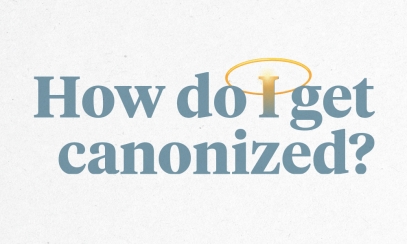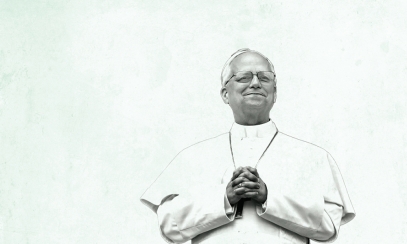
What is an indulgence?
Getting your Trinity Audio player ready...Q: “I am confused about indulgences. After I am forgiven of my sin, I heard that the consequences of my sin still remain. Is there a debt to be paid? Checking boxes for certain tasks on certain days in certain places to remove purgatory time sounds superstitious to me. Help me understand.”
Q: “I am confused about indulgences. After I am forgiven of my sin, I heard that the consequences of my sin still remain. Is there a debt to be paid? Checking boxes for certain tasks on certain days in certain places to remove purgatory time sounds superstitious to me. Help me understand.”
A: Your confusion makes sense. Indeed, historically, indulgences were at times misunderstood by faithful Catholics, including priests — even today! The Council of Trent (1545-1563) addressed clerical ignorance that led priests, unable to explain indulgences, grace, or doctrine, to misrepresent teachings. For this reason, Trent established seminaries, clarified pastoral responsibilities, and raised educational standards, ensuring clergy understood and taught authentically, thus eliminating superstition and transactional misconceptions. Therefore, let us walk through this carefully.
The Code of Canon Law describes indulgences: “An indulgence is the remission before God of temporal punishment for sins whose guilt is already forgiven, which a properly disposed member of the Christian faithful gains under certain and defined conditions by the assistance of the Church which as minister of redemption dispenses and applies authoritatively the treasury of the satisfactions of Christ and the saints.” (992)
First, what indulgences are not: a) purchasing forgiveness, salvation, or merit through human effort alone; b) “earning” heaven through external acts without interior conversion; or c) magical rituals or mere “checking boxes.” Second, what indulgences are: If we sin, we incur guilt before the Lord, damaging our relationship with him and our neighbor. Alongside guilt, there are natural consequences (temporal punishment) affecting ourselves, others, and creation. In the sacrament of reconciliation, the Lord forgives our sins, removing eternal punishment and reconciling us to himself; however, temporal consequences remain. (CCC 1472 Consider a child who breaks a window and genuinely says, “Sorry”: The parent forgives fully, but the broken window still needs repair. Similarly, Jesus’s sacrifice reconciles us completely to the Father, removing eternal punishment, but temporal consequences remain in the order of justice and healing. The Father’s justice is restorative, aimed at deeper repentance, moral awareness, and spiritual growth. He designed purgatory to reflect this restorative justice, cleansing remaining attachments to sin and repairing spiritual damage, preparing us for perfect union with the Triune God.
An indulgence is the Father’s merciful heart, applying his Son’s infinite merits to these temporal consequences. (CCC 1471) Think of it as healing spiritual wounds through Christ’s grace, administered through his bride, the Church. (CCC 1478) These indulgences require some or all of the following: sincere spiritual dispositions, such as genuine repentance, sorrow for sin, intention to avoid future sin, confession, receiving the Eucharist (the source of all grace), and prayers for the pope as expressions of unity within the Church, etc.
The Church provides specific indulgenced actions as practical means of conversion and spiritual growth — not magic rituals, but genuine encounters with the Lord Jesus, the power of the Holy Spirit, and the Father’s heart for you. Indulgences are Spiritually effective not because of external acts alone, but because of your sincere disposition and intention behind them, leading you toward genuine contrition, deeper prayer, and authentic love for the Lord and neighbor. In other words, an indulgence, like purgatory, is a beautiful participation in the Father’s restorative justice and healing power for you. I hope this helps!
Father Mark Rutherford is a priest of the Diocese of Lansing and Judicial Vicar of the Archdiocese for the Military Services, USA. He is looking forward to addressing your questions related to canon law, our Catholic faith, and how we can live it out in our everyday lives. Please send your questions to faithquestion@dioceseoflansing.org.



